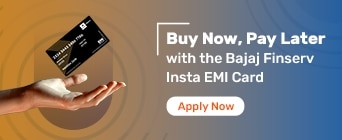Apple’s iPhone lineup caters to both users seeking high-end features and those looking for a simpler, budget-friendly alternative. Comparing two different iPhones, such as the iPhone 16 Pro vs iPhone SE (3rd Gen) could be a great way to see which one matches your lifestyle and budget. Both come from Apple but could cater to very different types of users.
The iPhone 16 Pro is built for those who want a sleek design, a brighter screen, and Apple’s latest chip for smooth performance. It could look and feel premium, with features aimed at power-heavy users. On the other hand, the iPhone SE keeps things simple with its compact size, familiar home button, and a chip that still handles most tasks with ease.
Your decision will come down to how you use your phone and what features you care about most. Compare the iPhone 16 Pro and iPhone SE across design, display, performance, battery life, and more to help you decide what works better for you.
Before diving into the differences in design, camera, performance, and other aspects, take a look at the key specifications that set both these iPhones apart. Here are some of the key features to compare iPhone 16 Pro vs iPhone SE side-by-side:
Feature |
iPhone 16 Pro |
iPhone SE (3rd Gen) |
Display |
6.3-inch, Super Retina XDR, Always-On Display. |
4.7-inch, Retina HD Display. |
Processor |
A18 Pro chip. |
A15 Bionic chip. |
Build |
Titanium build. |
Aluminium build. |
Camera system |
Single-camera system, 12MP Main. |
Pro camera system, 48MP Fusion, 48MP Ultra Wide, Telephoto. |
Biometric Security |
Face ID. |
Touch ID. |
Battery Life (Video playback) |
Up to 27 hours. |
Up to 15 hours. |
Operating System (At launch) |
iOS 18. |
iOS 15. |
Model Options (By storage) |
128GB, 256GB, 512GB, 1TB. |
64GB, 128GB, 256GB. |
The iPhone 16 Pro could stand out with its newer specifications, including a better display, more powerful processor, and advanced biometric security through Face ID. The iPhone SE, on the other hand, offers solid performance but may not include many of the cutting-edge features that the 16 Pro has to offer.
When considering a new phone, design may often be one of the first factors that draw attention. Compare the build quality and aesthetic differences between the iPhone 16 Pro vs SE:
Aspect |
iPhone 16 Pro |
iPhone SE (3rd Gen) |
Frame Material |
Titanium. |
Aluminum. |
Back Material |
Textured matte glass. |
Glass. |
Dimensions (Height x Width x Depth) |
149.6 x 71.5 x 8.25 mm. |
138.4 x 67.3 x 7.3 mm. |
Colors Available |
Black Titanium, White Titanium, Natural Titanium, Desert Titanium. |
Midnight, Starlight, (PRODUCT)RED. |
Notch |
Dynamic Island. |
Traditional Notch. |
Water Resistance |
IP68 (up to 6 meters for 30 minutes). |
IP67 (up to 1 meter for 30 minutes). |
Weight |
199 grams. |
144 grams. |
The iPhone 16 Pro could boast a more premium design with a titanium frame and textured matte glass back, which gives it a sophisticated, modern look. The iPhone SE could also be durable as it uses an aluminum frame and glass back, offering a more classic design. If you prefer a modern, sleek look with a slightly larger build, the 16 Pro might be the better option. If you prefer a compact phone with a familiar feel, the iPhone SE might be more comfortable to use and easier to carry around.
In the iPhone 16 Pro vs iPhone SE comparison, the iPhone 16 Pro might offer more versatility, with a triple-lens system, high-resolution sensors, and support for advanced photo and video formats. The iPhone SE, in contrast, could be a simpler choice for everyday photography. It uses a single 12MP wide camera that might deliver good results in daylight but may not support more creative or low-light features. Take a look at how the iPhone 16 Pro and iPhone SE compare in terms of camera technology.
Camera Feature |
iPhone 16 Pro |
iPhone SE (3rd Gen) |
Main Camera |
48MP, ƒ/1.78 aperture, sensor-shift OIS. |
12MP, ƒ/1.8 aperture, OIS. |
Ultra-Wide Camera |
48MP, ƒ/2.2 aperture. |
Not available. |
Telephoto Camera |
12MP, ƒ/2.8 aperture. |
Not available. |
Macro Photography |
Available, 48 MP. |
Not available. |
Night Mode |
Available. |
Not available. |
Portrait Mode |
Next-gen Portraits with Focus and Depth Control. |
Standard Portrait Mode with Depth Control. |
ProRAW & ProRes Support |
Available. |
Not available. |
Front Camera |
TrueDepth camera, 12MP, ƒ/1.9 aperture, Night Mode, Smart HDR 5 |
FaceTime HD camera, 7MP, ƒ/2.2 aperture, Smart HDR 4 |
Zoom Range (Optical) |
From 0.5x to 5x optical zoom range |
1x zoom |
Zoom Range (Digital) |
Up to 25x digital zoom |
Up to 5x digital zoom |
The iPhone 16 Pro could suit you if you're looking for professional-grade output with features like macro photography, Night mode, and ProRAW. The iPhone SE might be better if you prefer a simple point-and-shoot camera that works well for casual use. Your choice may depend on how often and how creatively you use your phone camera.
The iPhone 16 Pro might deliver stronger performance with the A18 Pro chip, offering improved speed, graphics, and efficiency. It could also provide longer battery life, which may help if you stream, game, or multitask often. The iPhone SE, powered by the A15 Bionic chip, might still handle everyday tasks smoothly, though its battery and processing power may not match the latest models. Compare how iPhone 16 Pro vs iPhone SE handle performance and battery life.
Specification |
iPhone 16 Pro |
iPhone SE (3rd Gen) |
Chipset |
A18 Pro |
A15 Bionic |
Capacity (Mid-range) |
256GB |
128GB |
Video Playback |
Up to 27 hours | Up to 15 hours |
Video (Streamed) |
Up to 22 hours |
Up to 10 hours |
Audio Playback |
Up to 85 hours |
Up to 50 hours |
Fast Charging (With a 20W adapter) |
Up to 50% in around 30 minutes |
Up to 50% in around 30 minutes |
Wireless Charging |
MagSafe and Qi compatible |
Qi compatible |
Charging Port |
USB-C, Supports USB 3 |
USB-C, Supports USB 2 |
The iPhone 16 Pro could be a better choice if you expect longer usage hours or want the latest chip for performance-intensive tasks. The iPhone SE might still serve well for general use but may fall behind in speed and battery life if you rely heavily on your phone throughout the day.
Both iPhones run on iOS, but the iPhone 16 Pro might come packed with more advanced features. It includes Dynamic Island, Always-On Display, and Face ID, all designed to enhance how you interact with the device. The iPhone SE keeps things simple with core iOS functionality and the familiar Touch ID. While both support software updates, the 16 Pro could offer longer support due to newer hardware. If you're after the latest tools and a future-ready experience, the 16 Pro might edge ahead in this comparison.
Feature |
iPhone 16 Pro |
iPhone SE (3rd Gen) |
Dynamic Island |
Available |
Not available |
Always-On Display |
Available |
Not available |
Face ID / Touch ID |
Face ID |
Touch ID |
Crash Detection and Emergency SOS via Satellite |
Both available (Satellite SOS in select regions) |
Not available (standard Emergency SOS) |
iOS Version |
iOS 18 |
iOS 15 |
Software Longevity |
Likely to get updates for more years |
Could receive updates for fewer years |
Exclusive Features |
Enhanced with hardware-driven iOS tools |
Standard iOS features without enhancements |
For users who want the latest iOS features like Dynamic Island and Always-On Display, the iPhone 16 Pro might deliver a more premium experience. The SE may be better suited for those who prefer a basic, reliable iPhone with essential features and a more traditional interface.
The price difference between the iPhone 16 Pro vs iPhone SE is significant, the iPhone 16 Pro sits at the premium end of Apple’s lineup, with prices starting around ₹1,20,000 and going higher based on storage. It reflects the phone’s cutting-edge design, performance, and features. In contrast, the iPhone SE could offer a more affordable entry into the Apple ecosystem, starting at approximately ₹47,500.
Price often becomes a key factor when choosing between the iPhone SE and iPhone 16 Pro. If you're looking for a budget-friendly iPhone that covers the basics well, the SE might be a great fit. But if you're after advanced display tech, powerful cameras, and long-term software support, the iPhone 16 Pro could justify the higher cost.
You could choose the iPhone 16 Pro if you value the latest technology, superior camera capabilities, and a premium design. It might be ideal for users who require top-tier performance and advanced features for gaming, photography, and everyday use.
On the other hand, you could choose the iPhone SE if you prefer a compact, budget-friendly device that still delivers solid performance for essential tasks. It might be ideal for those who don’t need the latest features but still want the reliability and simplicity that Apple offers.
After you have decided your preferable option between iPhone SE vs 16 Pro, purchasing your iPhone could become easier with the Bajaj Finserv Insta EMI Card. Here are some benefits:
Easy monthly instalments
Full upfront payment not required
Zero down payment at certain partner stores.
No credit card needed, and no time-consuming loan approvals.
Relaxed EMI plans to suit your budget.
Shop online or in-store in an instant using your pre-approved credit limit.
The Bajaj Finserv Insta EMI Card ensures a smooth and hassle-free shopping experience for both the iPhone 16 Pro and iPhone SE.
Related to Bajaj Finserv EMI Network Card
- EMI Card
- Bajaj Finserv EMI Network Card Login
- Bajaj Customer Portal
- Apply for Bajaj Finserv Insta EMI Card
- Eligibility For Bajaj Finserv EMI Network Card
- Bajaj Finserv EMI Network Card Benefits
- Bajaj Finserv EMI Network Card Charges
- Bajaj Finserv EMI Network Card Offers
- Bajaj Finserv Partner Stores
- No Cost EMI
- EMI Without Credit Card
- EMI Card VS Credit Card
- Bajaj Finserv EMI Network Card Accepted Shops
- Check EMI Network Card Details
- Bajaj Finserv EMI Network Card Statement
- Bajaj Finserv EMI Network Card Cash Withdrawals
- Bajaj Finserv EMI Network Card Limit
- Bajaj Finserv EMI Network Card Status
- EMI Network Card FAQs
- Unblock EMI Network Card
- Interest on EMI Network Card
Manage your EMI Network Card
- How to Activate Bajaj Finserv EMI Network Card?
- How to Increase Bajaj Finserv EMI Network Card Limit?
- How to Use Bajaj Finserv EMI Network Card?
- How to get Bajaj Finserv EMI Network Card number?
- How to Check EMI Network Card Balance?
- How to Change the Bajaj Finserv EMI Network Card Pin?
- How to Get the Bajaj Finserv EMI Network Card Pin?
- How to Change the Registered Bajaj Finserv EMI Network Card Phone Number?
- How to Check the Bajaj Finserv EMI Network Card CVV Online?
- How Does No Cost EMI Work?
- No Cost EMI at Amazon
- No Cost EMI At @Home
- No Cost EMI at Flipkart
- No Cost EMI Goibibo
- No Cost EMI at Hometown
- No Cost EMI at MMT
- No Cost EMI at Xiaomi
- No Cost EMI at Oneplus
- No Cost EMI at Oppo
- No Cost EMI at PayTm
- No Cost EMI at Pepperfry
- No Cost EMI at Realme
- No Cost EMI at Samsung
- No Cost EMI at Vivo
- No Cost EMI at Yatra
Shop for products on EMI
- Laptops on EMI
- Mobile on EMI
- iPhone on EMI
- AC on EMI
- Cycle on EMI
- Furniture on EMI
- HP Laptop on EMI
- iPhone 13 on EMI
- TV on EMI
- Dell Laptop on EMI
- Inverter on EMI
- Washing Machine on EMI
- Camera on EMI
- Flight Tickets on EMI
- Computer on EMI
- iPad on EMI
- Electronics on EMI
- Macbook on EMI
- Refrigerator on EMI
- Modular Kitchen on EMI
- Printer on EMI
- Sofa on EMI
- Travel on EMI
- Macbook Air on EMI
- Tour Packages on EMI
- Tyre on EMI
- Apple Watch on EMI
- Iphone XR on EMI
Frequently Asked Questions
What is the major difference between iPhone SE and iPhone 16 Pro?
There might be several differences between iPhone 16 Pro vs SE. The iPhone 16 Pro has a larger display, better camera system, newer A18 Pro chip, Face ID, and premium titanium design. The SE is compact, uses an older A15 chip, and has a single camera.
Is the iPhone 16 Pro worth more than the iPhone SE?
Yes. The iPhone 16 Pro costs more due to its advanced features, display, camera, build, and longer software support. The SE is priced lower for users needing basic functionality.
Is the iPhone 16 Pro's battery life significantly better than the iPhone SE?
Yes. The 16 Pro offers up to 27 hours of video playback, while the SE provides up to 15 hours. When comparing iPhone 16 Pro vs SE, iPhone 16 Pro offers nearly double the battery life.
How does the display quality of the iPhone 16 Pro compare to the iPhone SE?
The 16 Pro features a 6.3-inch Super Retina XDR display with Always-On and Dynamic Island. The SE has a 4.7-inch Retina HD display without these enhancements.
Are there any new features in the iPhone 16 Pro not available in the iPhone SE?
Yes. Features like Dynamic Island, Always-On Display, Face ID, Pro camera system, and USB 3 support are not available on the iPhone SE.
Is the iPhone 16 Pro worth the upgrade from the iPhone SE?
If you want better performance, display, camera, and longer support, the upgrade is worth it. If your needs are basic, the SE still handles daily tasks well.






